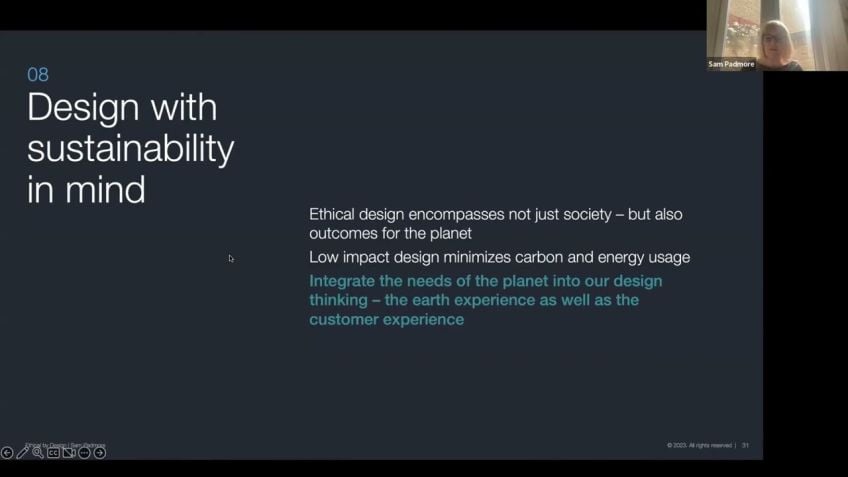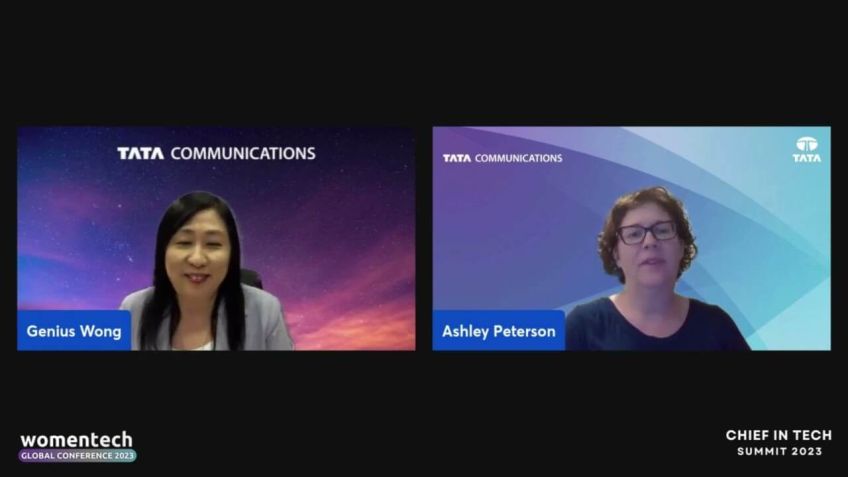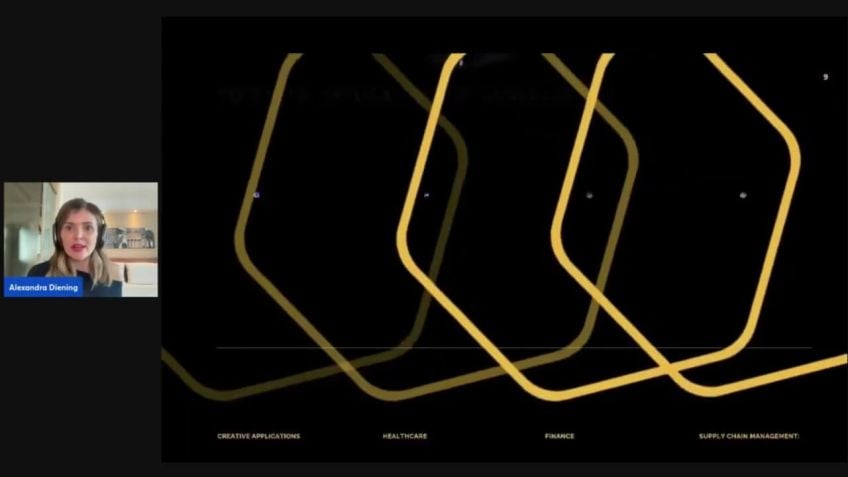Cloud Transformation through the HashiStack: a CSM's perspective by Dorina Timbur
A Guide to Hashicorp and Being a Success in the Tech Industry with Dorina
Hello, everyone! I’m really grateful you’ve joined me today. There’s a host of great talks happening simultaneously, so we appreciate you choosing to be a part of this moment. My name is Dorina, a proud Customer Success Manager at Hashicorp. We’re going to discuss Hashicorp’s suite of products and how they power multi-cloud transformation. We will also delve into my experiences within the hi-tech environment as a Customer Success Manager.
Who Should Read This Guide?
The target group for this presentation includes individuals either finding their feet in this role or those who’ve recently transitioned and may feel rather intimidated by the complex intricacies of this industry. My primary aim is to inspire you to step up boldly and discover your definition of success.
About me
To start off, a little bit about me. I was born and raised in Moldova and studied law at university, based on advice from family and friends. However, towards the end of my studies, I realized it wasn’t the career path I wanted. Consequently, I switched to customer service and sales. In 2016, I got the opportunity to apply for an entry-level technical support role at Red Hat in Brno, Czech Republic. The tech industry promised promising career growth opportunities and Red Hat supported my visa application, making it an ideal choice.
Working at Hashicorp
In 2019, I leveraged my experience to land my first role in customer success, then referred to as an Account Manager. I have been working as a CSM at HashiCorp for the past six months. So, what is Hashicorp? Hashicorp is a provider of multi-cloud automation software for infrastructure provisioning, security, networking, and application deployment.
The Important Role of Hashicorp
Infrastructure serves as the invisible force and building blocks behind cloud services that we engage with and love. To the average user, the nitty-gritty of cloud infrastructure is something they leave for tech geeks to worry about. However, for companies providing these services, doing cloud infrastructure the right way is non-negotiable. Hashicorp helps these companies securely and effectively deploy and manage their cloud infrastructure, enabling them to focus more on innovation.
Hashicorp and The Shift From Static to Dynamic Data Center Infrastructure
Over the past couple of years, companies have been shifting from a static to dynamic data center infrastructure. In the past, companies typically maintained one private data center, and that was sufficient.
But now, they need more and are thus adopting dynamic cloud and multi-cloud. In this world of dynamic infrastructure, Hashicorp steps in with a unified workflow to deploy and manage things across multi-cloud.
Hashicorp Products
Some of HashiCorp's most popular products include;
- Terraform: Enables you to deploy infrastructure like virtual machines, containers, and networks for private networks.
- Vault: Responsible for securely handling secrets like passwords and certificates.
- Consul: Connects things distributed across multi-clouds securely.
Our products are available both as open source, which means they are free to use and contribute to, but also some are available as enterprise, which entails support and exclusive enterprise features provided to paying HashiCorp customers.
Quick Hashicorp Overview
Hashicorp was founded in 2012, and we recently went public in December 2021. With approximately 2000 employees, most of us work remotely from across the world. We are hiring, so if any of what you’ve read so far interests you, feel free to check out our careers page.
Lessons I've Learned to Navigate a Highly Technical Environment
In my role, I interact with different stakeholders daily. To help them efficiently, I strive to comprehend what’s important to them and the challenges they face. Here are some lessons I've learned in the process.
- Don't beat yourself up for not having an engineering degree: Remember, your contribution shines when you're able to bring technical and non-technical people to the table and facilitate an effective conversation to solve some business problems.
- Quit saying,' I'm not technical': Make an effort to understand high-level technical concepts. Resources such as the Cloud Guru, Udemy, Coursera, AWS, and Azure make it easier to understand these concepts.
- Know your audience: Tailor your conversations to the person you are speaking to in order to maximize the effect you will have within that account.
- Ask, then ask again: If you have any doubts, seek clarity from your colleagues or customer.
- It's OK to say, I don't know: When faced with a question you are unsure about, you can admit your ignorance and commit to finding the answer. Be resourceful and find those who can help your customer.
Lessons From Hashicorp Colleagues
During this segment, I would like to share insights from a few awesome colleagues at Hashicorp. They graciously shared their perspectives and lessons in their careers thus far.
Wrapping it Up
Whether you are looking to transition to this kind of role, or you are hoping to garner insights from shared experiences from myself and colleagues, I believe you have learned something new. Remember, surround yourself with people who support you and want to see you succeed — such a supportive environment helps you to thrive.
Feel free to connect on LinkedIn (link provided) or drop your queries in the comment section. As we wrap up this insightful journey within the tech realm and the world of Hashicorp, never forget that being courageous and finding your definition of success is the key. Stay in tune with the blog for exciting and savvy tech resources!
Video Transcription
OK. Hello everyone. Um Thank you for joining and thank you for choosing to come to my presentation. I know there's lots of really good talks happening at the same time. So thank you for choosing to be here.Uh My name is Dorina, I am a customer success manager at Hashicorp and today I would like to speak to you about the Hashicorp suite of products and how they enable multi cloud transformation. And I would also like to share my experience as a customer success manager working in this industry and sort of how I navigate the technical environment. The target audience for this presentation are people who are either new to this kind of role or who have maybe recently transitioned and might be feeling a bit intimidated by the complex things that are going on in this industry. My goal is ultimately to inspire you to be courageous and to find your meaning of success. If you're looking to transition to this kind of role and to share some of the lessons I learned. Um being in this role for a few years at the end, you will also hear from a few other women working at Hashi Corp and also have the chance to win a swag box. So stay tuned for that.
I will start with uh sharing a few things about me. Um OK, so I was born and raised in Moldova. Um I studied law University which was a decision highly influenced by my peers and family at the time. But towards the end of my studies, I realized this was wasn't really something I wanted to pursue as a career. Um So I started a career in customer service and sales instead, shortly after that was about 2016, um I had the chance to apply for an entry level technical support role at Red Hat in Brno, Czech Republic Tech seemed like a really good option at the time because it was gonna offer me lots of good career, career growth opportunities down the line to the future.
Um Plus Red Hat supported my visa application at the time. So it looked like a good decision. Um And so back, back back then, that's when uh my husband and I both the Czech Republic and uh as I wrote here, basically face planted into adulthood, having to do fun things like, you know, renting a flat for the, for the first time and figuring out taxes in a foreign country, um which was fun.
Uh In about 2019, we started to look for career opportunities in the UK where we moved eventually. And so I was able to leverage my couple of years of experience as um as an entry level technical support role to get my first role into customer success, which was called account manager at the time. Um And for the past six months, I've been working as a CS M at Hashi Corp and uh some truly random pics um of some recent pleasant memories for the past couple of months. So who is Hashi Kov? And what do we do? It is a provider of multi cloud automation software for infrastructure provisioning security, networking and application deployment. So I like to think about infrastructure as this invisible force and the building blocks that sit behind cloud services that we use and love. Like even this conference tool, for example, or social media or news channels or anything else that you browse online. Really. Um So at a very overly simplified level, these building blocks provide computing power that that is necessary to process requests. They provide networking which connects users to applications and to other users and storage for storing personal data like profile pictures. For example. Now, luckily for the average user, we really don't have to think or care about cloud infrastructure and its importance.
But for the companies that provide these services doing cloud infrastructure properly is really important. And uh that's essentially where has a Corp comes in is we help these companies securely and effectively deploy and manage their cloud infrastructure so that they can focus more on innovating through their own, their own services and products that they deliver to their end customers.
Now lately in the past couple of years or so, um companies are talking more and more about this shift from a static to dynamic data center infrastructure on. You also hear them talking about things like multi cloud and what this essentially means is, you know, in the past companies would maintain typically one private data center, uh whether it was, you know, somewhere in their basement or in a in an authorized uh vendors data center and they were calling it a day that was pretty much enough, you know, with the virtualization technology and things like that.
But lately companies find that they need more than that. And so they are adopting this thing called multi cloud and this thing called dynamic cloud. And what this means is in addition to maintaining that private data center or that one cloud that they were using before, they are now using a combination of private and one or more public cloud like a W SS and Azure. And so in this world of dynamic infrastructure, hashicorp comes in and provides this unified workflow to deploy and manage things across multi cloud. So no matter you know which cloud they're using, there's a central place, there's a essential process and workflow to get things done across multi cloud.
Some of Hashi Kopp's most known products include terraform which allows you to deploy um infrastructure like virtual machines, containers, networks for um private networks. For example, tele form allows you to do this cool thing called infrastructure as code, which means that instead of manually clicking things in a user interface or running commands to a cli command line interface, you can define the state of your desired infrastructure as code and you can run that in a repeatable, predictable way which is a lot more efficient vault.
Is there for securely handling secrets like password and certificates. We all know that data breaches are scary and not fun at all. Uh So that's why it's there to solve um console. Um because even when you have things distributed across multi clouds, you may still have the need to connect them in a secure way. So these are just a few, there's a few more that I mentioned here in the list. Um I will not hear that these products are available both as open source, which means they are free to use and contribute to, but also some are available as enterprise, which means there are some, there is support and some exclusive enterprise features that are provided to paying hash group customers and also manage cloud services, which is a form of enterprise support where hash Corp provides these services as a as a cloud based service, taking away some of the operational complexities like the need to manage upgrades.
For example, as a company, we were founded in 2012 we went public in December 2021. We have around 2000 employees. Most of us working remotely from across the world, we do have vacancies available. So if any of this sounds interesting to you today, feel free to have a look at our careers page and uh see if you find something you may want to apply to. Now, in my role, I deal with a multitude of different stakeholders. Um I speak every day to practitioners like site reliability engineers, developers, security specialists, and a whole other types of practitioners. And in order to help them, I have to try to understand more or less or the best of my liabilities, what's important to them, what kind of challenges do they have? Um And so for this, for this next section, I would like to share some of the lessons I learned being in this role for a few years and most of them are centered around how to navigate a highly technical environment. So the first lesson is don't beat yourself up for not having an engineering degree. And as you've seen from my introduction, I don't have one many CS MS don't, but there is no such thing as a CS M degree or CS M University yet.
And so we all come into this role and we leverage the existing transferable skills we have and we look for a way to be successful in this role. It's really easy to feel like an impostor, but I encourage you not to. And as I said, leverage your existing skills, which I'm sure you have. And just remember that your contribution shines when you're able to bring technical and non technical people to the table, facilitate an effective conversation in order to help solve some business problems.
That's ultimately our goal next is quit saying I'm not technical and say I'm not an engineer or practitioner instead or even better say something like I haven't experienced this issue before or I haven't had this question before because honestly being an engineer doesn't guarantee you'll always know the answer.
Um Maybe they don't. So that's why they're asking you. Um So we just do your best to write down the question and make sure you have a good understanding of what's going on and either follow up later on or connect the people with someone who can help them. You're not necessarily here because you're supposed to answer the question yourself, but be resourceful and find the resources and the people who can help your customer next is make an effort to understand the high-level concept. So despite the previous two points, I do want to emphasize that if you want to be successful in a technical environment as a CS M, you do need to make the effort to at least understand the high-level technical concepts because that will encourage your customers to involve you more in their conversations because they know you're making the effort to understand the kind of challenges they're facing with.
Now, luckily now, nowadays, there are plenty of resources um online that focus on explaining technical concepts in an easily accessible way. You know, tech learning is not anymore this, you know, geek only environment with only advanced topics being explained online. There are plenty of resources where you can learn things at a high level just to just to help you navigate the environment. So a few resources that I can recommend that I use is the technical newsletters technically and DLDR. Um And from the learning platforms, I like a cloud guru, Udemy Coursera, you can also look at the public clouds like Aws and Azure. They all of them have some sort of foundational level training tracks or certifications that you can look into. You can also look at your company's um technical blog. If they have one for information that's going to be super specific to your exact environment and the services you provide. So I would say try to allocate around an hour each week just to make sure you stay up to date with the latest updates in the industry because I I really believe it will be helpful for you. Next is to know your audience and when to do business talk versus technical talk. So again, as CS MS, we deal with a multitude of different stakeholders. If you're speaking to a manager or director, they care about compliance and saving resources and saving money.
If you speak to a practitioner, they care about doing things efficiently and avoiding error and doing things faster and things like that. So I would recommend tailor your conversations and have a set of questions that are tailored to the specific person that you are speaking to in order to maximize the effect that you will have within that account as an added benefit. When you put yourself in that in the respective people's shoes and you come here and you ask them questions that they care about. They will see that you are professional and they will see that you are prepared and it's gonna help with the relationship building as well. Next is think in terms of solutions to business problems. So sometimes a problem is truly very difficult to understand and you don't even know where to start and what kind of questions to ask. So when that happens to you and it's probably gonna happen, try to steer the conversation away from the technical issue and towards the real life problem. So ask things like, you know, what kind of pain is this problem causing you? What would the solution look like for you or what kind of benefits would a solution enable for you?
If you ask those open ended questions, your customer will open up more about the the business reason and the business issue behind the issue they're having and you'll just have a better conversation, you will hopefully be able to understand more about what's going on and then eventually translate those needs internally towards your colleagues of the product team.
For example, next, next is to ask, then ask again. So again, as CS MS, we have lots to balance, you know, trainings on boardings, QBRS cadence calls things like that. It all these things take a lot of mental space. So really don't exhaust yourself by trying to make assumptions in your head about, you know, how you perceive a situation. If you have any doubts, just go to your colleague, go to your customer and confirm with them the understanding that you have, I guarantee they will be happy that you, you're looking to establish a level of clarity. And finally, it's OK to say, I don't know. Um and look even the most senior engineers sometimes are faced with new situations, which is normal because the tech changes every year and those people who stay successful are the ones that adopt the growth mindset and they just keep learning that's applicable to them. It's applicable to you as well as the CS M. So you're gonna be faced with a question, just say, I don't know, do your best to write down the uh the problem, ask some clarifying questions and then follow up or connect the customer with someone who can help them solve that problem.
Um So these are my lessons learned. I would like to switch for a moment to the audience here and say if you have any tips that have worked for you in the past, go ahead and drop them in the chat or if you have any questions, drop them in the chat as well for those of us um listening here myself included to learn more from you and I'll drop into the chat if I have some time at the end and we can, can have a bit of a conversation for this next part.
Um I would like to share some lessons learned from a few of my amazing colleagues here at Hashicorp who have opened up to me about some of the lessons they learned in their career in general. And in Hashi Corp specifically, I do hope they inspire you as they did inspire me. And I really do hope the audio picks up.
I think people don't realize that if they're already problem solving, whether it be for their family members or their friends, you probably already have the like skills to troubleshoot. You may need some more technical stuff. But I think anybody can learn the technical stuff for tech in how to troubleshoot. But really, it's the people at fact that counts because there are times when I'm on a call, I'm like, I just don't know, but I will find out for you because I may not know. But that honesty and my positivity and I will find an answer for you is usually what translates and makes things better. I believe everybody can be in tech. Um I don't feel like there's this magic that people need to know.
You know, a lot about solutions engineering, it's not just technical skills, it's a lot of people skills too. And I was really terrified to even apply because I was like, I'm not technical enough. There's no way. And, um, you know, I really realized that it's much more than just the technical side. It's really about relationship building, which I love, I love the people aspect and I love helping people. A
man will apply for a job if he thinks that he needs like 10% of the like qualifications and for a woman, like she won't even think about it until she needs like 80 or 90% of the role. And that's, it's just so unfortunate if you have, you think that you want to do this kind of work and that you have the ambition to um be successful in the role, then just apply. Um Especially if you're a woman
we've been hiring and focusing on folks who are able to deal with ambiguity because there's gonna continue to be ambiguity in our space for a little while. And so having folks that are able to bring system thinking um that strategic research mindset service design is a skill we look at because it helps folks connect the dots across and make sense of them. Even as our environment continuously changes around
us, my interview process was phenomenal. Um A lot of times you go through an interview process and, you know, you meet different, um you know, people that you'd be potentially working with. And one thing that really stood out to me is how genuine everyone was and everyone, you know, talked about the principles the nine principal here at Hashi Corp and how important they are. And um I will say that when I joined the company that everything that was said during the interview process uh really rang true. Um Throughout my entire experience so far at
Hasior, I think one of the the big parts about being a 12 RK is being, you know, having a humility to say that you're going to learn. But also that someone else's solution is a pretty good solution for what they need right now. It may not be the perfect solution for the future. But um you have to acknowledge that, you know, like your own internal pride, you have to set it aside
of it. So I hope that was inspiring. Um If you'd like to hear more stories from the employees at hash group, we have a blog here that you can access. Um And uh yeah, check it out now finally for this last and hope. Whoops. I think people play fun part. You have the chest winner, Hashi called branded swag box. Yay. Uh If you're interested, go ahead and access this link, I'll leave the slides on for the remaining um part of, of my, of my time today. So go ahead and fill in with just a short questionnaire and um I'll give it until the end of the week and we'll choose a win, a winner at random at some point early next week and contact you via email if you want. Um for the remaining time, I would just like to say again, thank you for tuning in. And thank you very much to my colleagues at Hashicorp who supported me in preparing this talk today, whether through feedback, video, editing the doing the video, video interviews that you just saw now, uh grammar feedback and just overall sheer amount of encouragement that I received.
I would like to leave it with just a parting message of surround yourself with people who support you and want to see you succeed because it truly is amazing what we can do when we, when we feel the people close to us supporting us. Um And with that, I'll just have a look if there's anything in the chat, if someone else left any suggestions, um If anyone would like to connect on linkedin, here's my handle over here and I hope you enjoy the rest of the event. I will briefly switch back to the slides of the link and I'll copy this and now I can, I copy this. Yes, I can. I'll drop the swag ruffle link in the chat. No, one minute left. So thank you vo for joining. I hope you enjoy the rest of the event and um nice chatting with you all. Bye.





